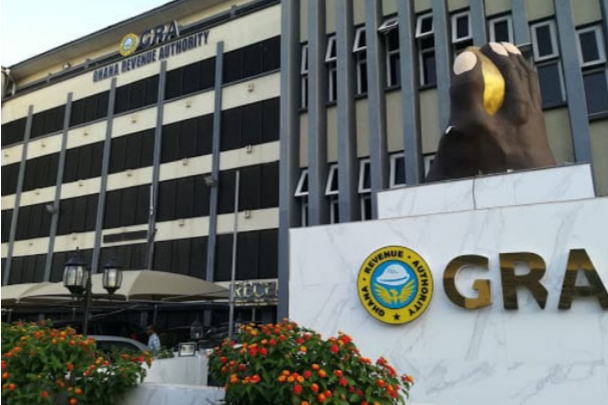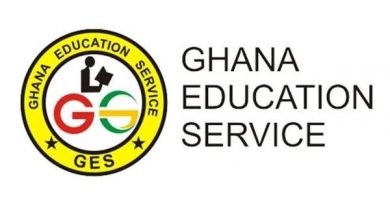News
Allow installed SML system to run until investigations are over – GRA begs Akufo-Addo

The Ghana Revenue Authority (GRA) has appealed to President Akufo-Addo to allow for the running of the Strategic Management Ghana Limited (SML) system that has been installed to enhance revenue assurance, for control purposes.
According to GRA, the “system will continue to record data real-time until your further directive after the conclusion of the investigation.”
They made this request in a rejoinder to the President dated January 16, 2024, and signed by the Commissioner General of GRA, Rev. Dr Amishaddai Owusu-Amoah.
The request, according to GRA, stems from concerns raised by SML about operation ramifications and disruptions that would arise from the intended suspension of operations.
“Having carefully reviewed the concern and based on our own understanding of the contracts and the deliverable, we are of the opinion that the system that has been installed to enhance revenue assurance, for control purposes, and also to aid with the ongoing investigation could with your kindest permission be allowed to run,” portions of GRA’s letter said.
This comes against the backdrop of President Akufo-Addo’s suspension of the GRA/ SML contract on January 2, and the appointment of an international audit and accounting firm, KPMG, to audit the contract and submit a report in two weeks.
GRA noted that although the operations have been suspended and no payment would be made on the contract until the president’s directive, “We can confirm that the suspension to all intents and purposes will lead to revenue losses.”
The SML contract, which was awarded to the company by the Ministry of Finance and the Ghana Revenue Authority (GRA), entitles the company to more than $100 million every single year for the duration of the contract.
According to the GRA, the contract is for five years, and renewable for another five years.
President Nana Akufo-Addo suspended the contract on January 2, and appointed an international audit and accounting firm, KPMG, to audit the contract and submit a report in two weeks.
This was after parliament had passed a resolution to investigate the contract.
The President’s directive followed an investigation by The Fourth Estate, which revealed that SML had made false claims about an earlier contract it had been awarded by the Finance Ministry and GRA to undertake revenue assurance in the downstream petroleum sector.
The company is paid up to GHS24 million a month for that initial contract.
SML had claimed that its operations saved Ghana more than GHS3 billion. When The Fourth Estate confronted the management of the company with revenue figures from the sector, which was less than the amount SML claimed to have saved within the same period, SML denied ever claiming to save that amount.
The Managing Director of SML, Christian Tetteh Sottie, said that the media made a mistake in its reportage of the figure.
When it was pointed out to him that the same claim was on the website of SML even as the interview was taking place, he said he did not “know about any website matter.”
When the investigation was published, the GRA issued a statement and insisted that SML’s claim of saving Ghana GHS3 billion was true, even though the GRA failed to indicate how that money would have been lost but for SML’s intervention.
Despite the admission by GRA officials in the investigative documentary that the Authority does not use the figures from SML’s measurement to calculate taxes and revenue, GRA claimed SML’s operation had resulted in a significant increase in volumes.
The Africa Centre for Energy Policy and IMANI Africa, however, countered the GRA’s claim of significant revenue increment, saying the claim is false.
The two civil society organisations said GRA’s data available on the Ministry of Finance’s website for statutory reporting under the Energy Sector Recovery Act (ESLA) and other statutory data on the website of the National Petroleum Authority (NPA) website did not support the GRA’s claim.
“In the year SML commenced operations (2019/2020), GRA’s data indicates a 5% growth in refined petroleum product consumption relative to the previous year (19.38 million litres). In the same period, the NPA reports a 7% growth (24.71 million litres) in product consumption. In the subsequent year (2020/2021), both GRA and NPA data align, indicating an 11% and 10% growth in product consumption, respectively,” the statement by the CSOs indicated.
They added: “The actual growth between 2018/2019 and 2020/2021 was about 62.95 million from NPA data and 60.15 million from the GRA Data. In the 2021/2022 year, the total consumption of refined products in the country declined by 5% and 7% according to NPA and GRA respectively.”
SML had also stated on its website that its operations had stopped “under-reporting, diversion and dilution of fuel products and general non-compliance in the petroleum industry sector.”
When The Fourth Estate team pointed to the company that the services that stopped those anomalies were performed by some other companies contracted by the NPA, the management of SML admitted the claim was false and deleted it from the company’s website that same day.
These anomalies notwithstanding, the Ministry of Finance, in June 2023, instructed the GRA to expand the scope of SML Ghana’s work.
A Ministry of Finance letter said the “Honourable Minister [Ken Ofori-Atta] has determined that there is the need to monitor the production and shipment of oil and gold out of the country.
“To this end, he would like to expand the Revenue Assurance work being performed by SML to include upstream oil drilling by the production companies and the gold mining companies,” the letter, dated June 22, 2023, said.
Some members of parliament, civil society groups and anti-corruption campaigners have questioned the basis for the award of the contracts to SML. Like the downstream sector, the upstream and gold mining sectors already had systems in place to protect government’s interest.
Source:Fiilafmonline/JoyNews



